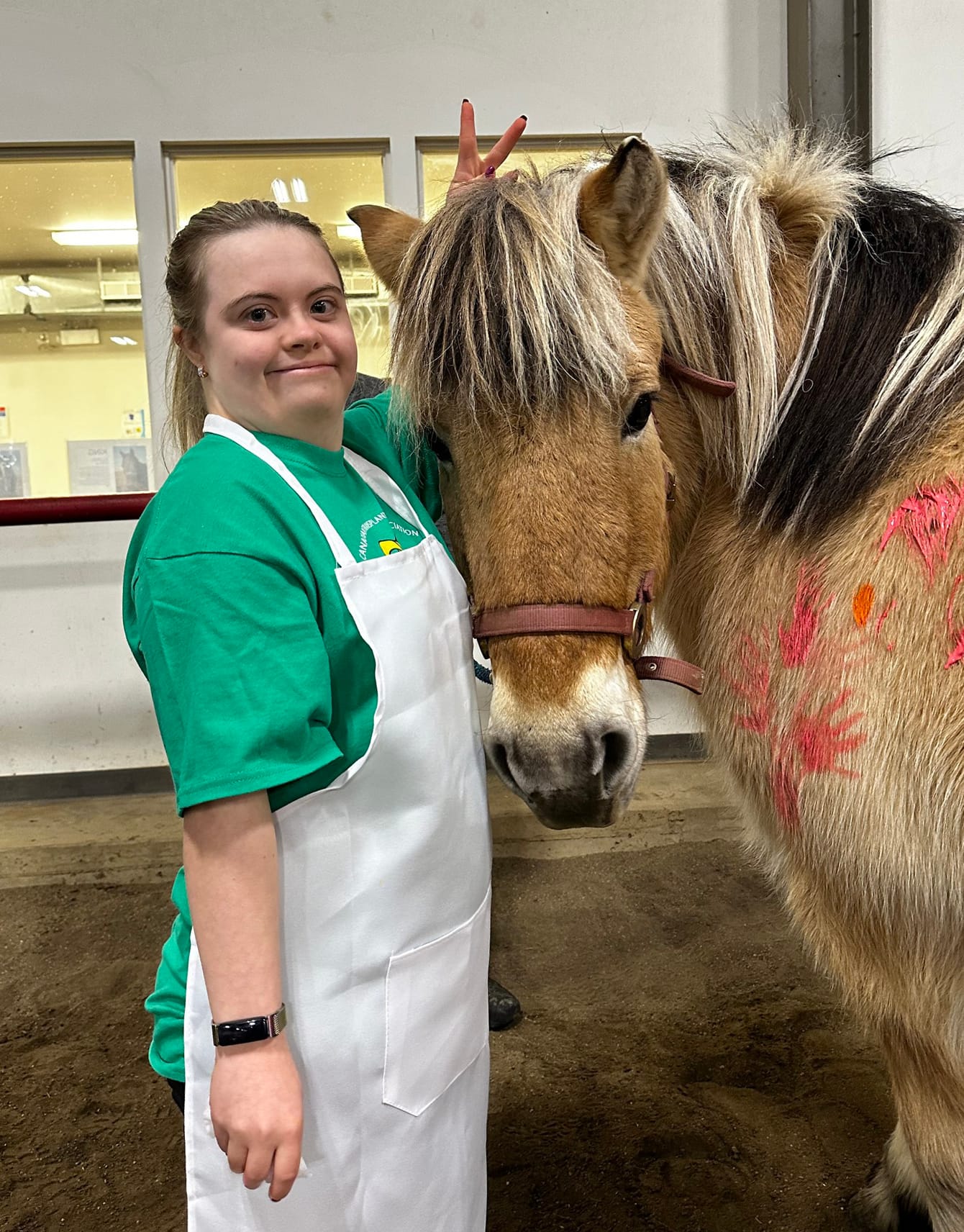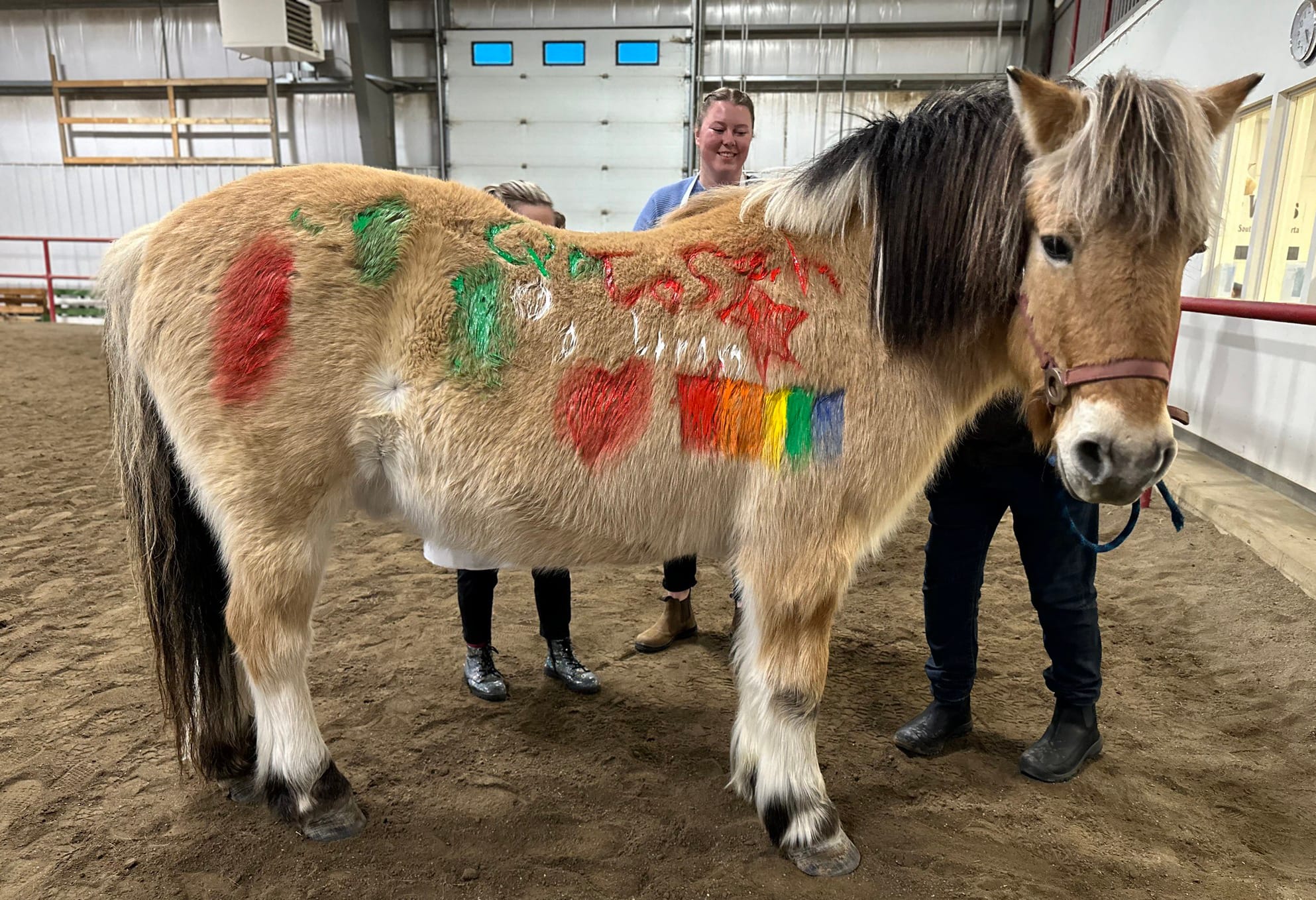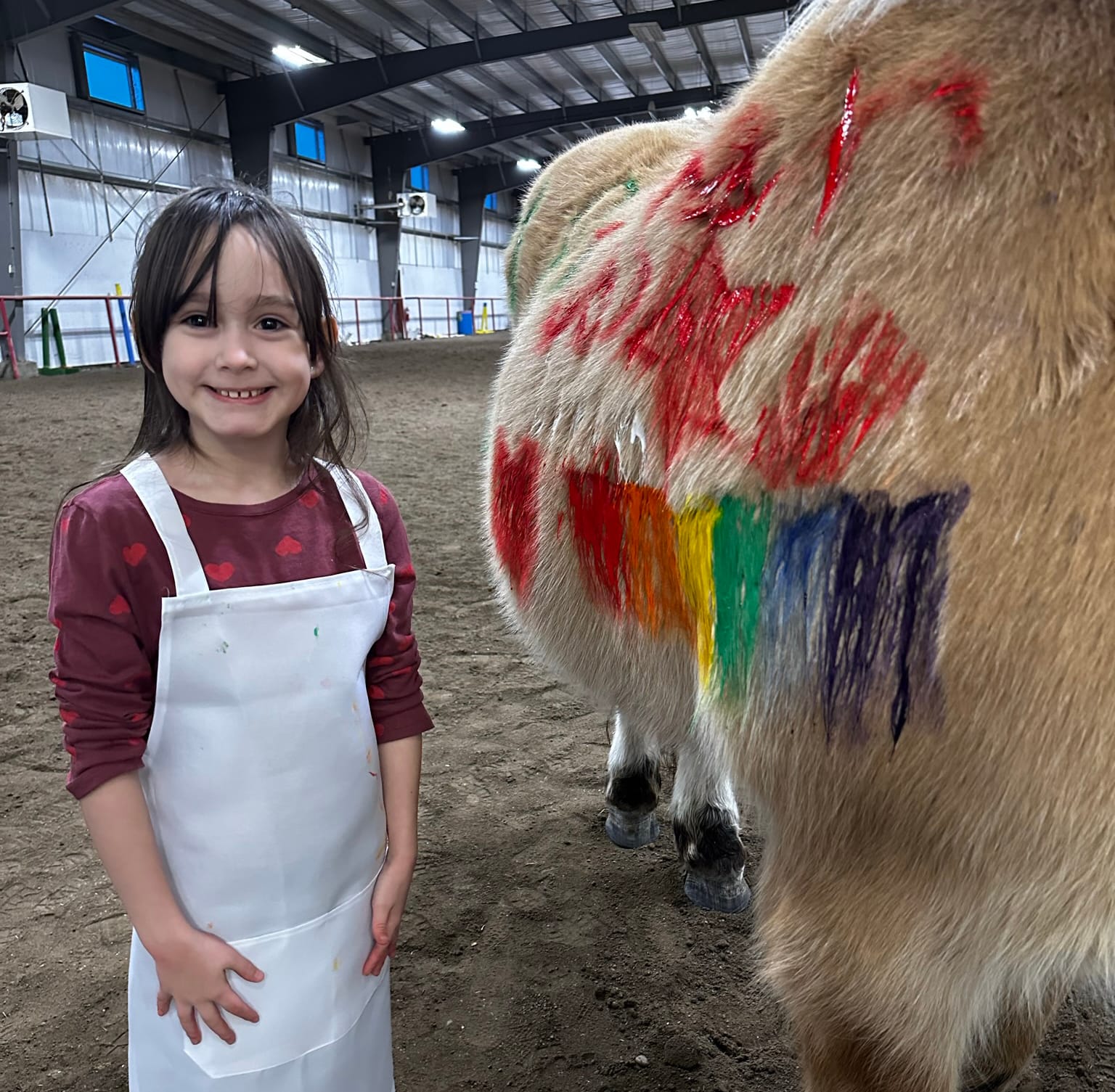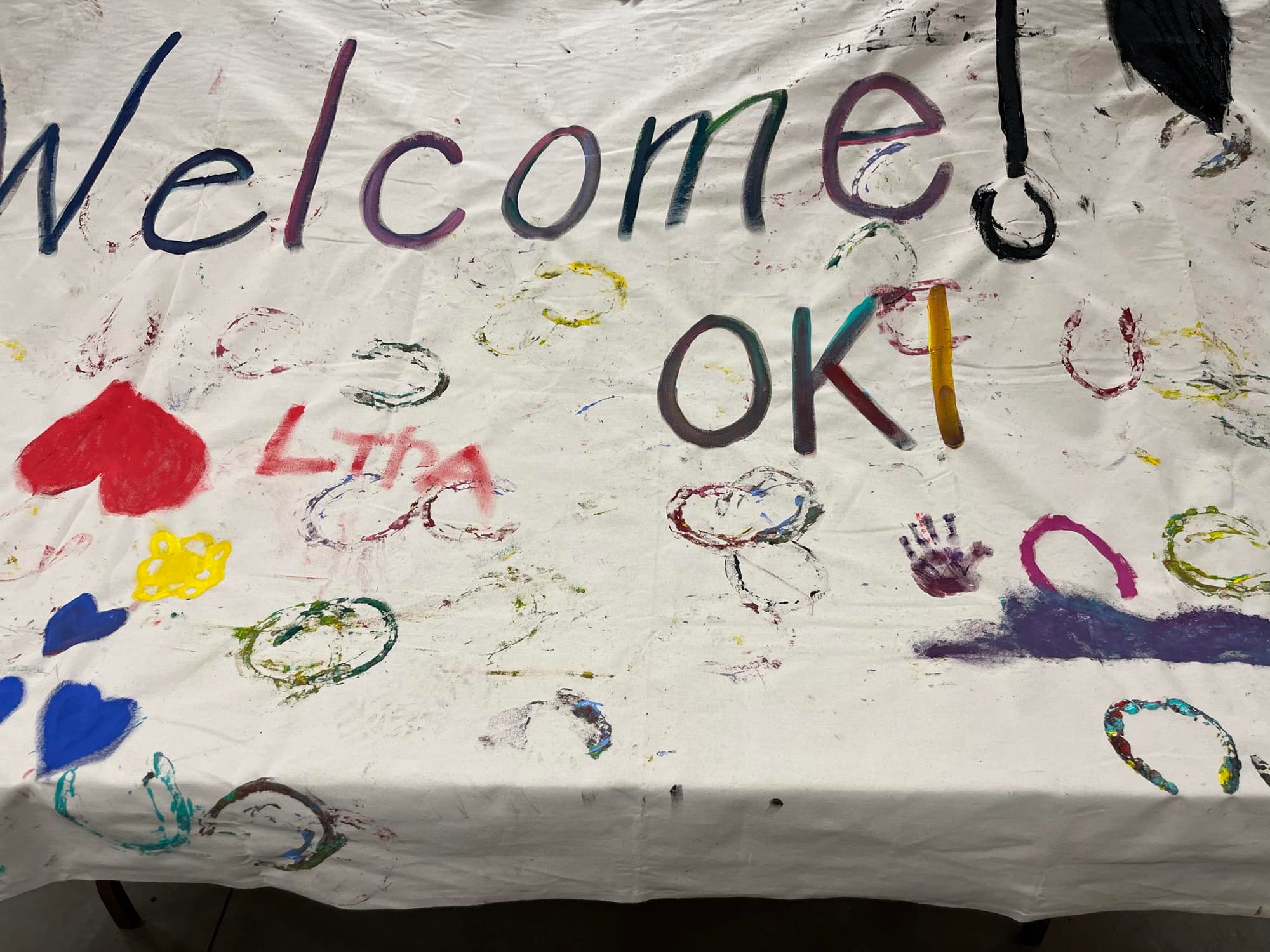As a master's student, alumna Amanda Ervin (BTR ’20, MSc ’23) researched relationship outcomes of therapeutic riding classes and discovered the Lethbridge Therapeutic Riding Association (LTRA).
“I enjoyed it so much that when they asked me to volunteer on the board of directors, I said ‘Of course! I would be honoured! Now I have the opportunity to advocate for the clients, highlight our community and communicate the value of the LRTA's farm.”
Fast-forward one year, and the organization was facing a gap in programming for clients when their therapeutic coach went on leave. Ervin stepped up with ideas for an expressive arts program.
“I thought about how we could combine art and equine therapy,” she says. “Even though our clients couldn’t have the riding classes, I wanted to get them in the arena where they could still be near the animals they love so much.”
- meaningful research and work-integrated learning opportunities
- flexible, future-focused programs
- supportive campus communities
- generous student funding
Explore programs
The program was open to LTRA clients and community members, some of whom had no experience with horses. During the first lesson and after the initial safety talk about being around horses, participants painted the horses using tempera paint mixed with soap for easy removal.

“Everybody fell into a state of flow and was so engaged — it was very quiet in the arena,” says Ervin. “People were thoughtfully painting on the horses, and the horses just stood there. It was honestly so amazing and so much more than I ever could have planned for.”
Other sessions involved painting the walls of the arena, creating a canvas full of brightly coloured hoof prints and decorating horseshoes. The finale was an art show for the participants and their families and friends.

Ervin also received volunteer help from current students in the Therapeutic Recreation program after Katelyn Scott, an instructor in the ULethbridge Therapeutic Recreation program, invited them to join in the classes.
“I feel so grateful to Katelyn for, first of all, her friendship, and also for the support of this program. It was great for the students to see,” says Ervin.
The art program was offered as a pilot, but the results have been so positive Ervin would like to offer it again.

“Based on the impact that I have seen and based on what the university students shared, I want to do this again,” says Ervin. “I’ll do everything within my power to see this program continue.”
Ervin says the art program wouldn’t have gone as smoothly without the help of Kale Hayes, LTRA executive director, and Karen Ortega, LTRA people & programs coordinator.
“Without Kale or Karen, this program would never have happened,” says Ervin. “The amount of planning, organizing and support I received from them is unmatched.”
